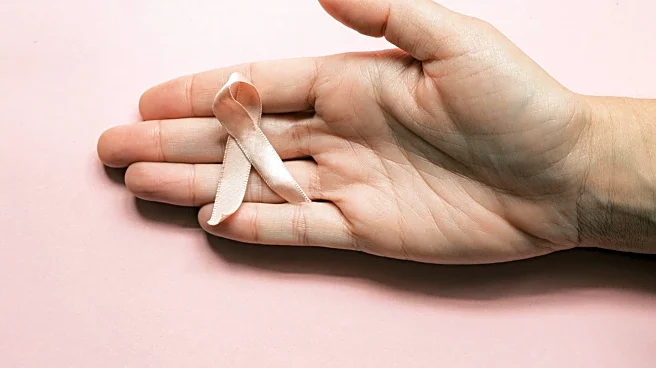What is the story about?
What's Happening?
Dr. Joydeep Ghosh, Senior Consultant at Apollo Cancer Centre, emphasizes the importance of monthly breast self-exams as a vital self-care ritual for women. This practice, ideally performed after the menstrual period, can help in early detection of breast cancer, which is the most common cancer among Indian women. The Indian Council of Medical Research reports that nearly 1 in 28 Indian women will develop breast cancer in her lifetime, with most cases diagnosed in later stages. Early detection through self-exams can significantly improve outcomes, as women become more familiar with the natural look and feel of their breasts, allowing them to notice subtle changes that may indicate early tumors.
Why It's Important?
The advocacy for regular breast self-exams is crucial in shifting the narrative around breast health from fear to empowerment. Cultural hesitation and modesty often prevent open discussions about breast health, leading to delayed diagnosis and treatment. By incorporating self-exams into routine self-care, women can take charge of their health, potentially saving lives through early detection. This practice not only empowers women but also sets a precedent for future generations, encouraging a proactive approach to health and wellness.
What's Next?
The promotion of breast self-exams as a regular self-care ritual could lead to increased awareness and early diagnosis, reducing the burden on medical infrastructure. As more women adopt this practice, healthcare providers may see a shift in the stage at which breast cancer is diagnosed, allowing for simpler management and treatment. Continued education and advocacy are necessary to overcome cultural barriers and ensure that women feel comfortable and empowered to perform these exams regularly.
Beyond the Headlines
The emphasis on breast self-exams highlights broader issues of women's health empowerment and the need for cultural shifts in health practices. By normalizing discussions around breast health, society can move towards a more open and supportive environment for women's health issues. This change could lead to increased funding and resources for breast cancer research and support services, further improving outcomes for women affected by this disease.
















